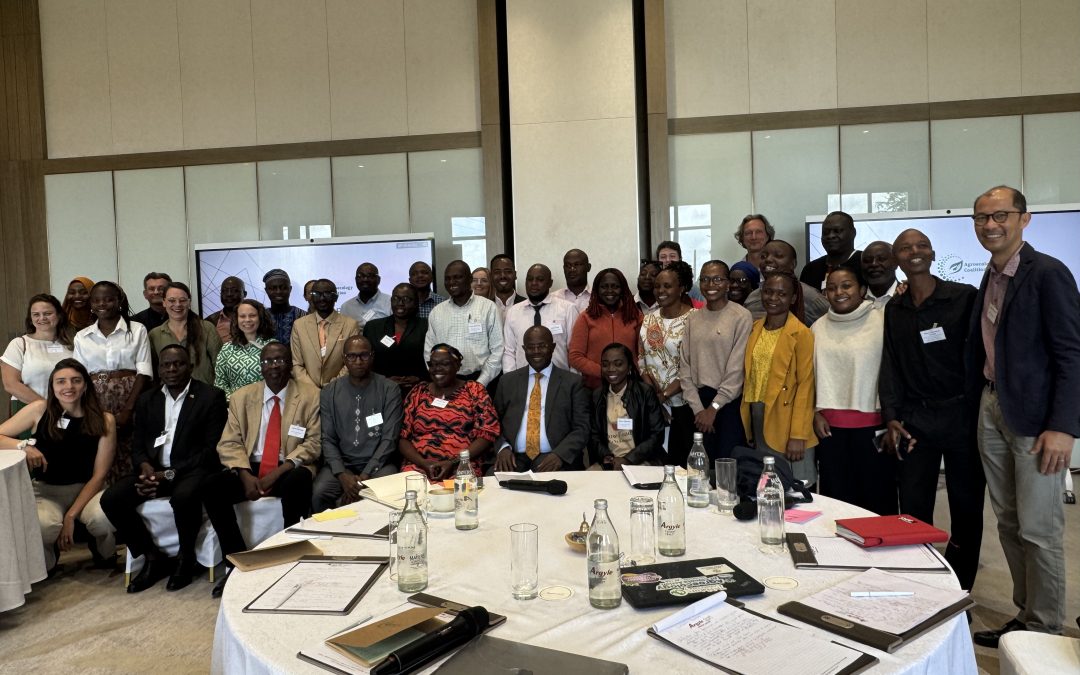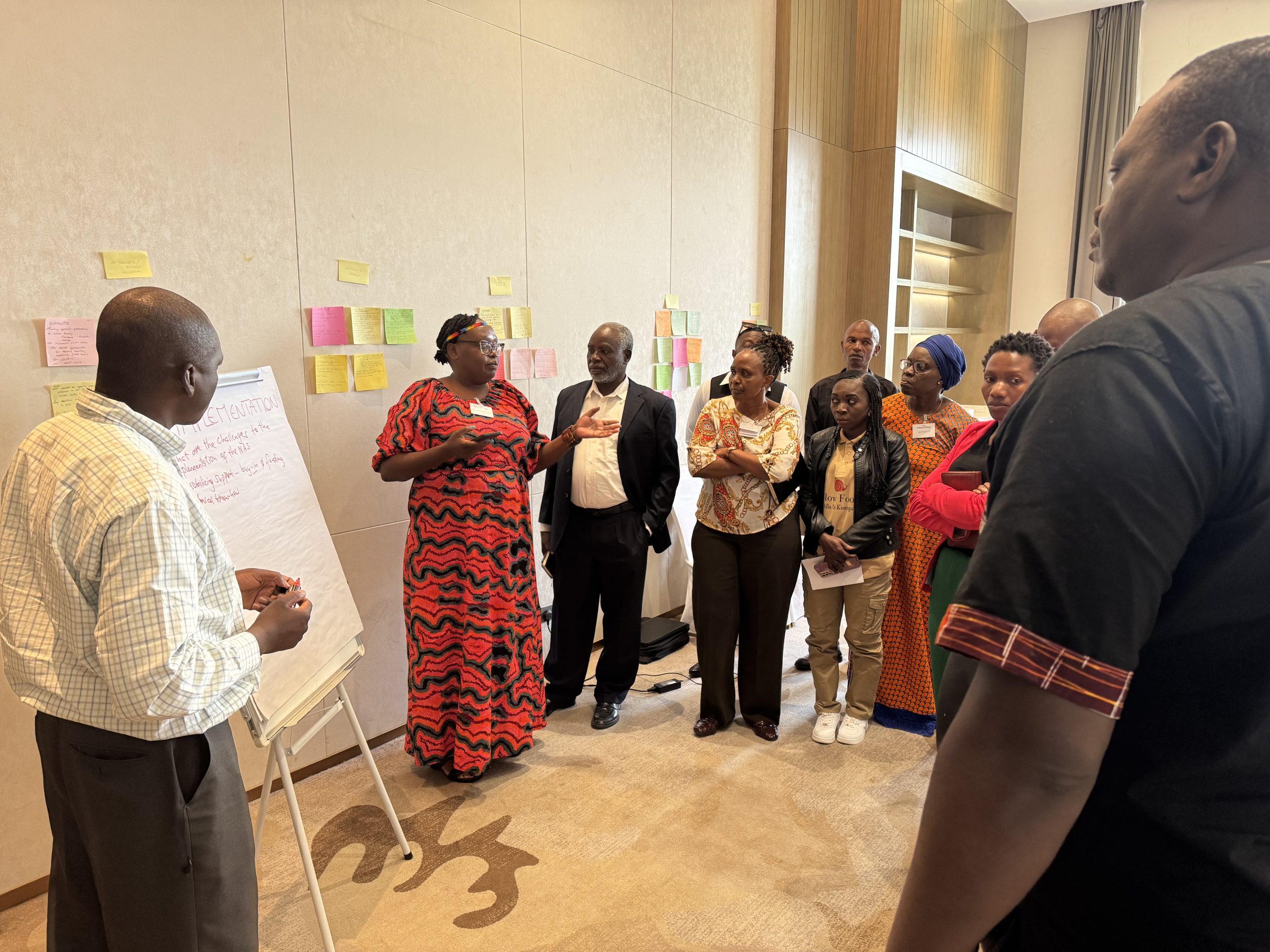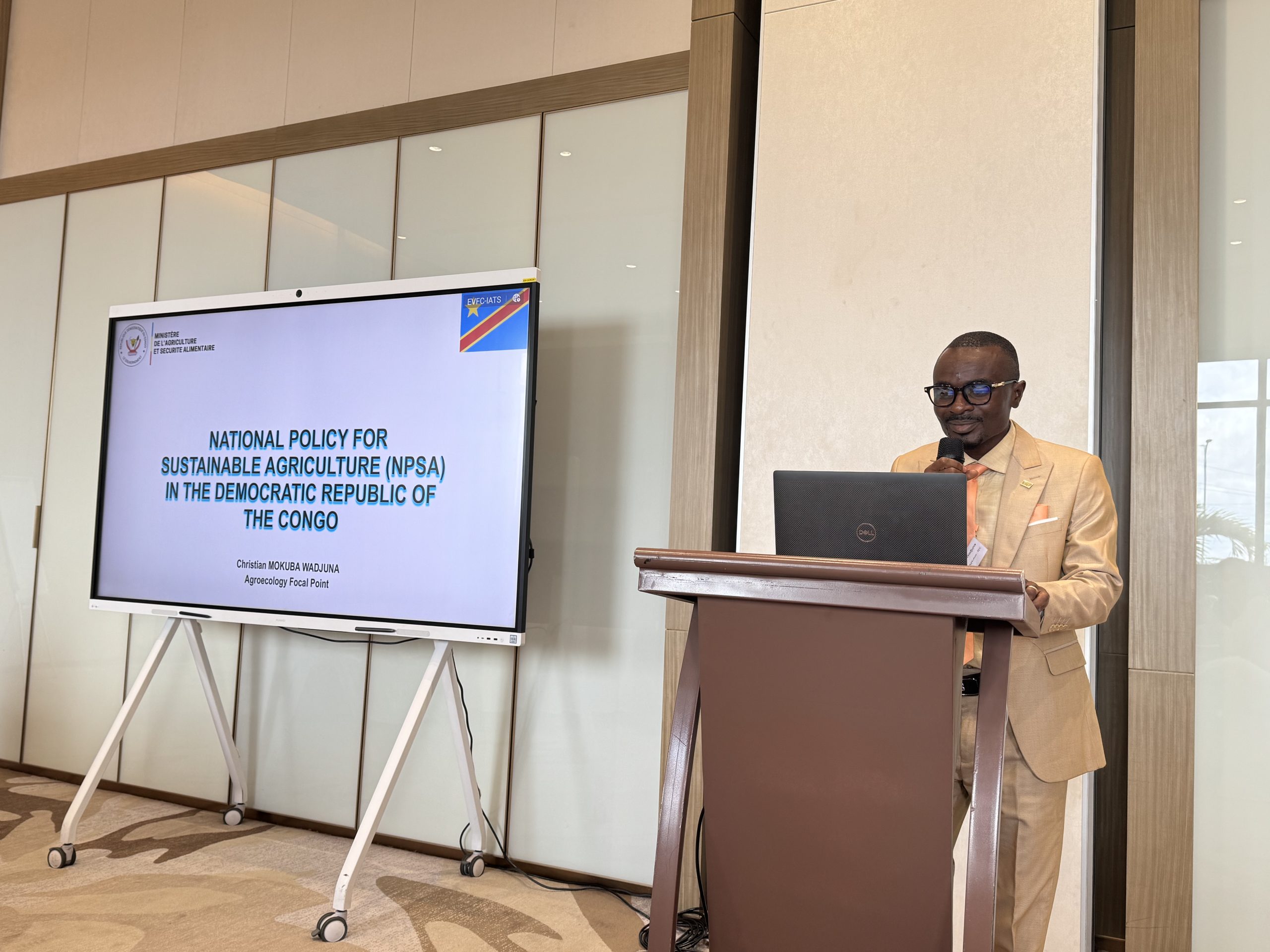Around 40 participants gathered for the first in-person Agroecology Coalition sub-regional members meeting in Eastern Africa held on 23 and 24 March in Nairobi, right before the 2nd Eastern Africa Agroecology Conference organized by Biovision Africa Trust (25-28 March).
For the first time since its creation, the Coalition gathering offered a unique opportunity for regional members to connect in-person, exchange experiences, draw inspiration from each other, and start collaborating on shared strategies for advancing agroecology in the region.
Participants included representatives from country members of the region and a wide range of organizations representing consumers, philanthropies, indigenous peoples’ and farmers.
Through presentations and group discussions, members exchanged on the growing momentum for agroecology taking place in the continent through the elaboration of National Agroecology Strategies (e.g. Tanzania, Uganda, Kenya, Muranga County) and the inclusion of agroecological practices into agricultural policies (for example in the Democratic Republic of Congo, Senegal and Malawi).
The vitality of the agroecological movement supported by CSOs, farmers associations and Indigenous People’s organizations on the ground is also proving to be crucial towards the agroecological transition.
Country participants from Kenya, Tanzania and Uganda as well as from Muranga county in Kenya shared their experience and lessons learned in developing (sub-) National Agroecology Policies and Strategies.
The ensuing discussion highlighted the interconnected barriers in advancing agroecology that stem from policy, institutional, economic, and socio-cultural factors. One major challenge lies in the lack of political will, as governments often prioritize industrial farming models due to economic and trade interests. This is increased by incoherent agricultural, environmental, and trade policies that frequently contradict the principles of agroecology. Institutional frameworks tend to be weak, with limited capacity to support agroecological initiatives through research, extension services, or targeted incentives.
Financial constraints further hinder the transition. Agroecology receives minimal funding compared to industrial agriculture, and there is a notable absence of incentives, subsidies, or accessible credit for farmers willing to adopt more sustainable practices. Private sector investments favor conventional models, creating an uneven playing field.
The knowledge and research landscape also presents significant obstacles. In many regions, agroecology remains under-researched and poorly integrated into agricultural education and extension systems. Traditional knowledge systems, which are essential to agroecological practices, are often overlooked in favor of conventional approaches. Meanwhile, powerful agribusiness interests actively resist shifts toward more sustainable models. Farmers using agrochemical inputs are hesitant in transitioning to agroecology due to fear of lower yields or economic instability.
Market access and value chain limitations create additional barriers. Agroecological products frequently struggle to find space in mainstream markets, hampered by weak supply chains and the lack of certification mechanisms. Consumer awareness and demand remain low in many areas, limiting the economic viability of these products.
Environmental and climate-related challenges such as floods and others can make agricultural practices more difficult to implement.
Socio-cultural and behavioral dynamics also play a role. Both farmers and consumers may lack a clear understanding of agroecology and its benefits. Furthermore, youth and women, who are often key actors in agroecological movements, frequently face limited access to support, training, and resources.
To overcome these challenges, several key actions are needed: ensuring policy coherence and providing institutional support is essential, along with increasing both public and private investments. Supporting farmer-led research and integrating traditional knowledge can help build resilient agroecological systems. Promoting fair markets and increasing consumer awareness will also be crucial, as will addressing environmental issues through ecosystem restoration and climate-adaptive strategies.
Further discussions in the gathering focused on opportunities for collective engagement in the region: prioritizing and strategizing and implementing the Coalition’s strategy in Eastern Africa.
Agroecology champions from within government circles, the collaboration with technical advisors in ministries, and effective communication (e.g. through a one or two pager information paper in a simplified manner backed up by civil societies to convey similar content to avoid confusion) are crucial. To make sure that the process is transparent and equitable, having strict reporting guidelines/deadlines (agreed by everyone, with Key Performance Indicators and a Steering Committee composed of all actors is key. Finally, mobilizing support and buy-in for funding and promoting technical know-how – extension and a gradual adoption to address the difficulty in farmers accepting/buying the agroecological practices are solutions to ensure the implementation of the strategy.
Participants also formulated key takeaways messages that they fed into the debates of the Eastern Africa Agroecology conference.




